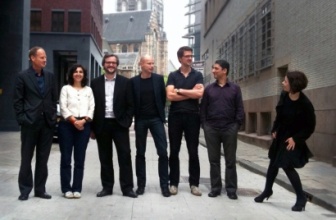About 6th IABR
The International Architecture Biennale Rotterdam (IABR) was founded in 2001 in the conviction that architecture and urbanism are of public importance. The most important task facing architecture is to contribute to the housing and living standards of billions of people. It is on that basis that the IABR is working on the city of tomorrow, also in the 5th edition: Making City.
6th IABR: Observing the streets
‘Observing the city’ That is the central point of the 6th IABR. The inevitable process of urbanization presents a huge political, social, economic and ecological challenge. At the same time, cities offer solutions for the tasks that face us in the 21st century. The city is our future. But only if it is designed, planned and managed better than it is at present. Making City explores future urban scenarios and, in the process, puts design first. It does that through exhibitions at various venues, a conference, debates and lectures, publications, and TV and radio programmes made with the VPRO broadcasting corporation.
The world is urbanizing at a rapid pace. By about 2050 more than seven of the nine billion people on earth will live in cities. The major socio-economic and ecological issues of this century are therefore urban problems. At the same time, ninety percent of our wealth is generated in cities. The 5th IABR: Making City is convinced that the city is our future. But are there new and better instruments and methods at our disposal for ‘making city’?
Just as in earlier Biennales, the 5th IABR: Making City is organizing its own research programme. With projects of its own as well as seven collaborative projects with the Dutch government and a selection of ‘best practices’ from around the world, the IABR is exploring ways of ‘making city’ that will last for a long time. In April 2012, 35 projects from over 25 cities around the world will be presented in Rotterdam. From places such as New York, Paris, São Paulo, Delhi, as well as Rotterdam, The Hague, Groningen and Almere, these projects show that standard solutions are no longer sufficient. In the future, city development will involve much more interplay between different disciplines. Continually changing alliances will have to balance their social agenda and economic ambitions. Only then will cities be the solution for the major socio-economic and ecological challenges that now face us. That is why Making City will examine the relation between planning, design and politics.
